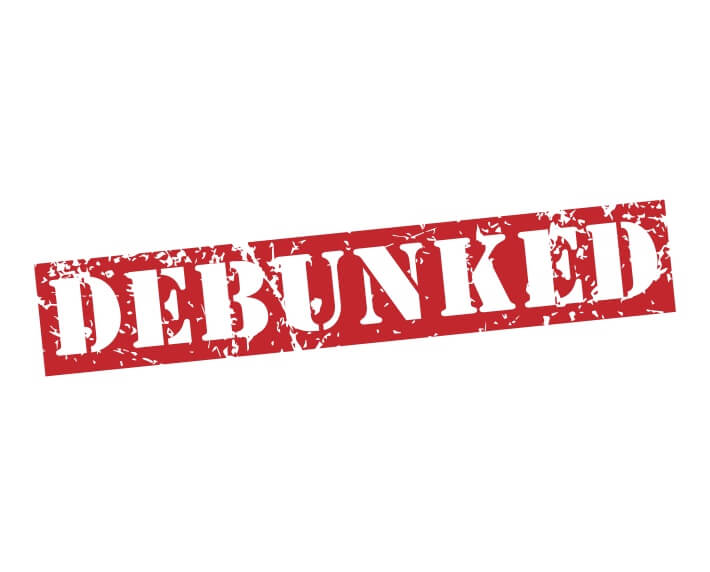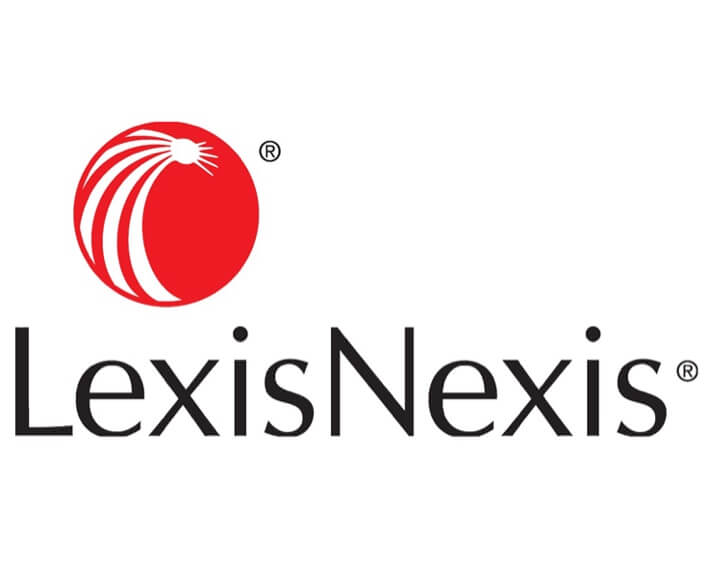Marijuana and Life Insurance: Understanding the Changing Landscape


Reviewed by
Grant Desselle
Licensed Insurance Agent
Most companies do not discriminate based on the method of consumption, most companies are still behind the times when it comes to accurately calculating the risk.
Marijuana is the most widely used illicit drug on the planet and the third most popular recreational drug, behind alcohol and tobacco. A recent Gallup poll conducted in 2015 indicates that one in eight adults use marijuana in some form. Given the sensitive nature of the poll topic, it’s not beyond imagination that the actual percentage of marijuana use might be higher than the Gallup poll suggests.
In the past, usage of marijuana has been a reason to decline coverage. If a policy was issued and the insurance company later learned the insured used marijuana, some insurers would even use that information as a basis to cancel the policy.
Times are changing, as is the public perception of marijuana use. This changing landscape has led several life insurance providers to reexamine their stance on marijuana use as it applies to rating risks for policies and setting premiums for marijuana users.
With marijuana use now legalized in many states and its medical use approved in several others, some insurers are using the data available to them to revise underwriting policies. Historically, marijuana users were grouped with smokers when applying for life insurance with many insurers. Effectively and collectively, insurers deemed the use of marijuana as a higher risk to the health of life insurance applicants.
While data regarding the health effects of marijuana use is limited due to the federal government’s prevention of studies on medical marijuana usage, some insurers are now treating its use more leniently, with a few insurers even offering preferred rates to customers who only use marijuana occasionally.
Insurance companies are in business to make money, and if a handful of companies are changing their underwriting stance regarding marijuana use, many others are likely to take a second look, or risk losing some business to more-lenient competitors.
Table of Contents
- Marijuana Usage and HIPAA Privacy Protection
- Marijuana and Life Insurance: Honesty is the Best Policy
- Understanding Life Insurance Rating Classes
- Why Choose A Marijuana-Friendly Life Insurance Company?
- What About Edible Marijuana Products?
- Why Aren’t All Life Insurance Companies Marijuana-Friendly?
- Rates May Differ Based on Frequency of Marijuana Use
- Rates for Medical Marijuana Use
- Talk to an Agent
- Let True Blue Help You.
Marijuana Usage and HIPAA Privacy Protection
While some life insurance companies are taking a more-lenient approach to marijuana use, applicants may still be reluctant to disclose their usage of the drug, whether for recreational use or for medicinal use. Concerns that law enforcement or employers might be notified top the list of reasons people who use marijuana might not apply for a life insurance policy. In the changing environment, marijuana use is being “decriminalized” by many life insurance companies, but it’s important to understand the new landscape and how marijuana users may be affected by these changes.
Disclosing use of marijuana on a life insurance application is confidential and protected by law.
You may have heard the fun-to-say acronym HIPAA used in conversations regarding medical conditions or in reference to health insurance. HIPAA stands for the Health Insurance Portability and Accountability Act, and the confidentiality protections in HIPAA apply to life insurance as well as health insurance. While, like most government acts, the language in HIPAA is long and complicated, the simple version is that the HIPAA privacy rule assures your privacy in regard to marijuana usage. In short, it’s nobody else’s business, and the law protects that confidentiality.
There is, however, one other entity that may learn of a life insurance applicant’s marijuana use: The Medical Information Bureau (MIB). The MIB serves as a resource for shared medical information. While the MIB is subject to the same HIPAA protections, preventing employers or the general public from learning of marijuana use, the medical information held by the MIB is available to member companies, which includes life insurers.
Marijuana and Life Insurance: Honesty is the Best Policy
Most life insurance policies require a medical exam, and as part of that exam often include a life insurance drug test. Marijuana can be detected in the system long after its use. The tests used to detect marijuana usage are testing for the presence and concentration of tetrahydrocannabinol (THC). While levels of THC found through blood tests fall quickly after use as the compound is absorbed into body tissue, according to some sources, the presence of the compound can be detected in urine tests up to three months after use. This longer detection period is more likely for frequent users but the underlying message is that it’s difficult to hide marijuana usage.
If you are a marijuana user, whether for recreational purposes or for medical use, and you want to purchase life insurance, your first step is to contact an agent to find out which companies provide marijuana-friendly policies.
As mentioned, not all life insurance companies are as forward-thinking on the use of marijuana as others. With these companies, not only do you have a better chance of getting a lower rate, but you can feel comfortable in disclosing marijuana usage.
Regardless of which life insurance company you choose to apply with, don’t lie about your marijuana usage (or anything else).
If a life insurance company declines an applicant for lying on their application, that information is shared with the Medical Information Bureau (MIB). A common question on life insurance applications asks if you’ve ever been declined for life insurance. No matter where you apply, that insurer will have access to the MIB records which will indicate if you’ve been declined for life insurance, and if you’ve lied regarding your health or habits on previous applications.
Understanding Life Insurance Rating Classes
Life insurers may use variations in terminology or nomenclature, but generally, most insurers will use rating classes that closely parallel the list below. Additionally, each insurer may weigh certain aspects of health more heavily or less heavily than other insurers. As always, it’s important to discuss your needs with an agent who can guide you toward a company or policy that best meets your specific life insurance needs.
Life Insurance Classes
- Preferred – Excellent health and family health history
- Standard Plus – Very good health, but kept from the preferred rating by smaller health issues or family history
- Standard – This is the rating for most of us and indicates average health and family history
- Preferred Smoker – A smoker in otherwise excellent health
- Smoker – Average health combined with smoking
- Rated Applicants – Some life insurance applicants will be “rated” applicants, usually indicating that a health issue (or two) prevent the applicant from being rated in the standard rating class. The applicant is insurable but higher premiums can be expected. You may hear the term “table rating” used in reference to applicants who don’t qualify for standard classes. Table ratings are assigned by letter or number, with each letter or number corresponding to a percentage increase in premiums above the premiums charged for a standard applicant.
Many insurers, even those with trusted household names, still rate occasional marijuana users along with the smoker class. But the climate is changing and a growing group of insurers are rating marijuana usage for occasional marijuana users less severely than smoking.
Why Choose A Marijuana-Friendly Life Insurance Company?
Life insurance companies set premiums based on a number of factors, the most important of which is your general health. Until recently, someone who used marijuana, even infrequently, might find themselves in the same classification groups as smokers.
It’s unlikely that anyone would (or could) smoke 20 marijuana cigarettes in a day like an average tobacco cigarette smoker, but many life insurance companies still rate the risk the same as a smoker. Cigarettes also contain dozens of carcinogens that are not present in marijuana or present in much lower levels.
More progressive life insurance companies recognize that the two activities really can’t be rated as the same level of risk. Some life insurance providers can even provide preferred rates, the best classification, for occasional marijuana users. Others might simply rate the risk similarly to how they would rate a celebratory cigar smoker, with little or no penalty in premiums.
Today, up to a third of life insurance companies provide non-smoker rates for occasional marijuana users. Expect that number to grow over time. Those companies reluctant to change their underwriting in favor of marijuana users are likely considering data that indicates heavy cannabis may be associated with its own health concerns such as oral, esophageal, and lung cancer.
What About Edible Marijuana Products?
For the purposes of rating risk for life insurance, life insurers don’t currently differentiate between the methods of using marijuana products, whether smoked, taken orally or if used in a vaporizer. Companies with marijuana-friendly underwriting for life insurance are more concerned with the frequency of use than with the method of use.
Why Aren’t All Life Insurance Companies Marijuana-Friendly?
Insurance is the transfer of risk from an individual to a pool of insured individuals. Life Insurance is unique in that the risk is 100 percent. We all die eventually. When a company rates a life insurance applicant, they are determining the risk that we will die early and that they will have to pay a claim early. Generally speaking, a higher risk will lead to a higher premium.
The data a life insurance company can gather about us helps the insurance company to understand our risk based on our health condition and habits. Once the risk is understood, the insurer can assign a rating class and determine premiums to be charged for the policy. Marijuana usage, as a risk, isn’t as well understood by insurers as some other risks. Unlike many other drugs, it isn’t physically addictive nor can a person overdose from its use.
Much as we can thank the government for protecting privacy for life insurance applicants through HIPAA laws, we can also blame the government for preventing some studies which would help insurance companies to better understand the risks or even the benefits of marijuana usage, particularly in the area of medical marijuana usage.
The scarcity of meaningful test data combined with the federal law which makes marijuana usage illegal on a national level makes many insurers err on the side of caution and rate the risk alongside smokers, often placing marijuana users in the same rating class as pack-a-day smokers.
Rates May Differ Based on Frequency of Marijuana Use
Frequent marijuana use can lead to being classified as a smoker. Even with some companies that are more lenient regarding marijuana usage, high or frequent usage can cause an applicant to be placed in a less-favorable rating class. Conversely, less frequent marijuana usage can earn a more-favorable rating class, assuming other health conditions are acceptable for that rating class.
Rates for Medical Marijuana Use
Each life insurance company’s underwriting policies determine if medical marijuana use can affect the life insurance class assigned to an applicant. Some insurers will still rate the risk as a smoker while others may rate that particular risk more leniently. However, medical marijuana use, when prescribed by a physician, is usually prescribed for the treatment of debilitating symptoms. The disease or malady for which the marijuana is prescribed can affect rates or eligibility.
Additionally, if the insurer deems the reason for the prescription to be a less-serious condition, they might consider the marijuana usage to be recreational. With some insurers, if marijuana usage is deemed recreational, the applicant may be rated as a smoker. Again, this is where the expert guidance of an agent will prove priceless. Agents can lead you in the right direction and match you with an insurer who best meets your needs. In a changing environment, such as marijuana and life insurance, it’s best not to poke around in the dark to find your way.
Talk to an Agent
Public perception of recreational marijuana use and medical marijuana use is changing and a growing number of life insurance companies are leading the way to more-forgiving rates for many marijuana users.
An experienced life insurance agent can help you understand your options and provide you with a realistic quote, assuming all the facts are known. Be up-front and truthful about marijuana usage and frequency, as well as any other questions regarding your health, habits, and family history.
Being candid with your agent bears no risk due to the legal confidentiality protections provided by HIPAA laws, and your candor will allow your agent to provide a more-accurate quote so you can protect your family or loved-ones and begin to budget for your life insurance policy.
Let True Blue Help You.
At True Blue, our business is simple. We are here to help as many customer get the best life insurance possible and provide amazing service. You can be sure that any information you provide will be kept in the strictest of confidence and all our records are secured at the high level of encryption on the market. Fill out the form below to get started.
See what you qualify for by answering some health questions.










